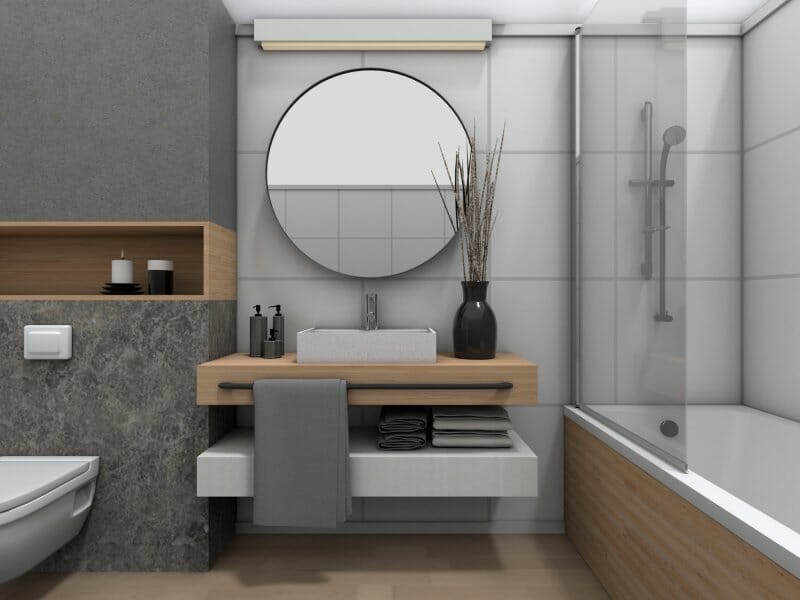How can I effectively plan and budget for a bathroom renovation?
 Bathroom renovations can be exciting projects, but they also require careful planning and budgeting to ensure a successful outcome. Whether you’re looking to update the look of your bathroom, increase functionality, or fix existing problems, proper planning is key. Here’s a comprehensive guide to help you effectively plan and budget for your bathroom renovation.
Bathroom renovations can be exciting projects, but they also require careful planning and budgeting to ensure a successful outcome. Whether you’re looking to update the look of your bathroom, increase functionality, or fix existing problems, proper planning is key. Here’s a comprehensive guide to help you effectively plan and budget for your bathroom renovation.
Assess Your Needs and Set Goals
Before diving into any renovation project, take some time to assess your needs and set clear goals. Determine what you want to achieve with the renovation and what problems you need to address. Evaluate your current bathroom layout, fixtures, and any issues that need attention.
Research and Inspiration
Gather inspiration from magazines, websites, and home improvement shows to get ideas for your renovation. Research different materials, fixtures, and design trends to find what suits your style and budget. Consider factors such as durability, ease of maintenance, and aesthetic appeal when selecting materials.
Set a Realistic Budget
Establishing a realistic budget is crucial for a successful renovation. Determine how much you’re willing to spend and allocate funds for different aspects of the project, such as labor, materials, and unexpected costs. It’s essential to leave room in your budget for contingencies to account for any unforeseen expenses that may arise.
Prioritize Renovation Elements
Decide what aspects of the renovation are most important to you and prioritize them accordingly. Whether it’s updating fixtures, improving storage, or enhancing functionality, allocate your budget based on your priorities to ensure you get the most value out of your investment.
DIY vs. Hiring Professionals
Consider whether you have the skills, time, and resources to tackle the renovation yourself or if it’s best to hire professionals. While DIY projects can save money, they may not always produce the desired results or be cost-effective in the long run. Assess your capabilities realistically and weigh the pros and cons of DIY vs. hiring professionals.
Create a Detailed Plan
Sketch out a detailed plan for your renovation, including the layout, timeline, and list of materials needed. Having a clear plan in place will help keep the project organized and on track. Be sure to factor in any structural changes, plumbing or electrical work, and permits that may be required.
Get Quotes from Contractors
Research reputable contractors in your area and obtain multiple quotes for the project. Be sure to ask for references and check online reviews to ensure you’re hiring a reliable professional. Compare quotes carefully and consider factors such as experience, quality of work, and communication before making a decision.
Choose Quality Fixtures and Materials
Invest in high-quality fixtures and materials that will stand the test of time. While it may be tempting to cut costs by opting for cheaper options, skimping on quality can lead to problems down the road and ultimately cost you more in repairs and replacements. Balance cost and quality to get the best value for your money.
Factor in Contingencies
Prepare for unexpected issues that may arise during the renovation process by setting aside extra funds for contingencies. Whether it’s discovering hidden damage, encountering structural issues, or facing delays, having a buffer in your budget will help mitigate stress and ensure the project stays on track.
Stay Flexible
Be prepared to adapt to changes and make adjustments to your plan as needed throughout the renovation process. Communication with your contractor is key to addressing any issues that arise and finding solutions together. Remember that flexibility is essential for a successful renovation.
Execute the Renovation
Once all the planning is complete, it’s time to execute the renovation according to your detailed plan. Stick to the timeline and monitor progress closely to ensure everything is proceeding as planned. Be proactive in addressing any issues that arise and make decisions promptly to keep the project on schedule.
Review and Evaluate
After the renovation is complete, take the time to review the final result and evaluate the process. Note what went well and what could have been improved upon for future projects. Learning from your experience will help you make better decisions and achieve even better results in the future.
Maintain Your New Bathroom
Once your new bathroom is complete, it’s important to maintain it properly to keep it looking and functioning its best. Follow manufacturer guidelines for cleaning and maintenance and address any issues promptly to prevent further damage. Regular maintenance will help prolong the life of your investment and ensure you continue to enjoy your renovated bathroom for years to come.
Conclusion
Planning and budgeting for a bathroom renovation may seem daunting, but with careful consideration and preparation, it can be a rewarding experience. By assessing your needs, setting clear goals, and creating a realistic budget, you can ensure a successful outcome that meets your expectations. Remember to stay flexible, communicate openly with your contractor, and prioritize quality to achieve the best results. With proper planning and execution, your dream bathroom is within reach.

